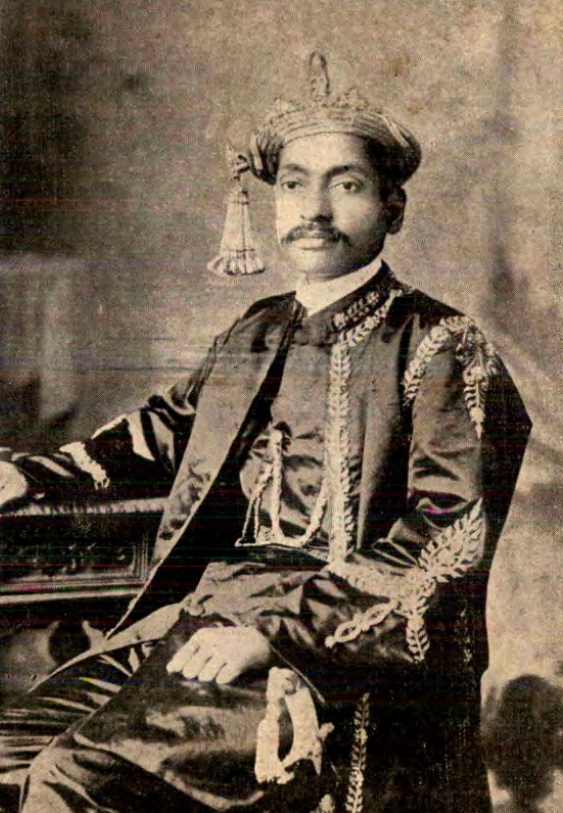Uday Pratap Singh Of Bhinga on:
[Wikipedia]
[Google]
[Amazon]
 Raja Uday Pratap Singh, Raja of
Raja Uday Pratap Singh, Raja of
/ref> He was also founder of the "Kshatriya Upkarni Mahasabha" for which he has made an endowment of Rs. 35,000; and was instrumental in founding of Akhil Bharatiya Kshatriya Mahasabha. He along with Thakur Umarao Singhji of Kotla, Raja Balwant Singh of Awagarh was instrumental in founding of
/ref> He was advisor to Education Commission. He was made member of Union Public Service Commission in the year 1886. In acknowledgement and recognition to his education, he was chosen fellow of Allahabad and Calcutta Universities. In later years of his life, he stayed in
Ramakrishna Advaita Ashrama, Varanasi
in 1902.
/ref>
 Raja Uday Pratap Singh, Raja of
Raja Uday Pratap Singh, Raja of Bhinga
Bhinga is a town, Nagar Palika and district headquarter of Shravasti district in the state of Uttar Pradesh, India.
Geography
Bhinga is located at . It has an average elevation of 120 metres (393 feet).Shravasti shares its border with ...
, C.S.I. (3 September 1850 – 1913) was a noted zamindar
A zamindar ( Hindustani: Devanagari: , ; Persian: , ) in the Indian subcontinent was an autonomous or semiautonomous ruler of a province. The term itself came into use during the reign of Mughals and later the British had begun using it as a ...
and philanthropist from Bhinga
Bhinga is a town, Nagar Palika and district headquarter of Shravasti district in the state of Uttar Pradesh, India.
Geography
Bhinga is located at . It has an average elevation of 120 metres (393 feet).Shravasti shares its border with ...
.
Family and education
He succeeded his father, the late Raja Krishna Datta Singh in 1862 and took charge of the estate of Bhinga in 1869. He was educated at the Court of Wards Institute, Lucknow.Philanthropic activity
He founded Hewett Kshatriya High School in Varanasi in 1909 which has grown into Udai Pratap Autonomous College. He also founded Udai Pratap Public School at Varanasi. He also established an orphans' home - Bhinga Raj Anathalaya at Kamachchha in Varanasi and also created a permanent fund by donating it Rs. 1,23,000/- to meet the recurring expenses. He donated thousands and lacs of rupees to several social organizations, to name a few- King George Medical College, Lucknow; Moolghandh Kuti Vihar, Sarnath; Calvin Taluqedar College, Lucknow; Hindi Pracharini Sabha, etc. He also created several permanent funds for providing scholarships to students from the interest earned.Udai Pratap Autonomous College/ref> He was also founder of the "Kshatriya Upkarni Mahasabha" for which he has made an endowment of Rs. 35,000; and was instrumental in founding of Akhil Bharatiya Kshatriya Mahasabha. He along with Thakur Umarao Singhji of Kotla, Raja Balwant Singh of Awagarh was instrumental in founding of
Akhil Bharatiya Kshatriya Mahasabha
Akhil Bharatiya Kshatriya Mahasabha also known as All India Kshatriya Mahasabha was founded in the year 1897
It was formed to promote, protect and fight for rights and interests of Kshatriya community of the Indian society.
Early years
After Rev ...
in year 1897Akhil Bharatiya Kshatriya Mahasabha/ref> He was advisor to Education Commission. He was made member of Union Public Service Commission in the year 1886. In acknowledgement and recognition to his education, he was chosen fellow of Allahabad and Calcutta Universities. In later years of his life, he stayed in
Varanasi
Varanasi (; ; also Banaras or Benares (; ), and Kashi.) is a city on the Ganges river in northern India that has a central place in the traditions of pilgrimage, death, and mourning in the Hindu world.
*
*
*
* The city has a syncretic t ...
, where he met Swami Vivekananda
Swami Vivekananda (; ; 12 January 1863 – 4 July 1902), born Narendranath Datta (), was an Indian Hindu monk, philosopher, author, religious teacher, and the chief disciple of the Indian mystic Ramakrishna. He was a key figure in the intro ...
. Charmed by his Advaita Vedantik knowledge, the Raja of Bhinga gave him Rs 500 for preaching Vedanta. Swamiji handed the money over to one of his brother disciple, Swami Shivananda
Swami Shivananda (1854–1934), born Tarak Nath Ghosal, was a Hindu spiritual leader and a direct disciple of Ramakrishna, who became the second president of the Ramakrishna Mission. His devotees refer to him as Mahapurush Maharaj (Great So ...
, asking him to start an Ashrama with the money at Varanasi. Swami Shivananda
Swami Shivananda (1854–1934), born Tarak Nath Ghosal, was a Hindu spiritual leader and a direct disciple of Ramakrishna, who became the second president of the Ramakrishna Mission. His devotees refer to him as Mahapurush Maharaj (Great So ...
starteRamakrishna Advaita Ashrama, Varanasi
in 1902.
Writings
He is the author of books - A history of the Bhinga Raj Family (1883); Democracy not suited to India (1888), The decay of the landed Aristocracy in India (1892); Memorandum on the education of the sons of Landlords (1882); Minute on the Law of Sedition in India (1892); The Russul Question (1893) and Views and Observations (1907)./ref>
References
{{authority control 1850 births 1913 deaths Indian royalty Founders of Indian schools and colleges Companions of the Order of the Star of India People from Shravasti district English-language writers from India 19th-century Indian philanthropists